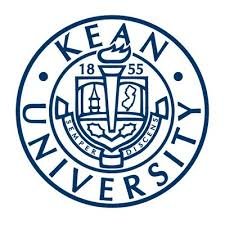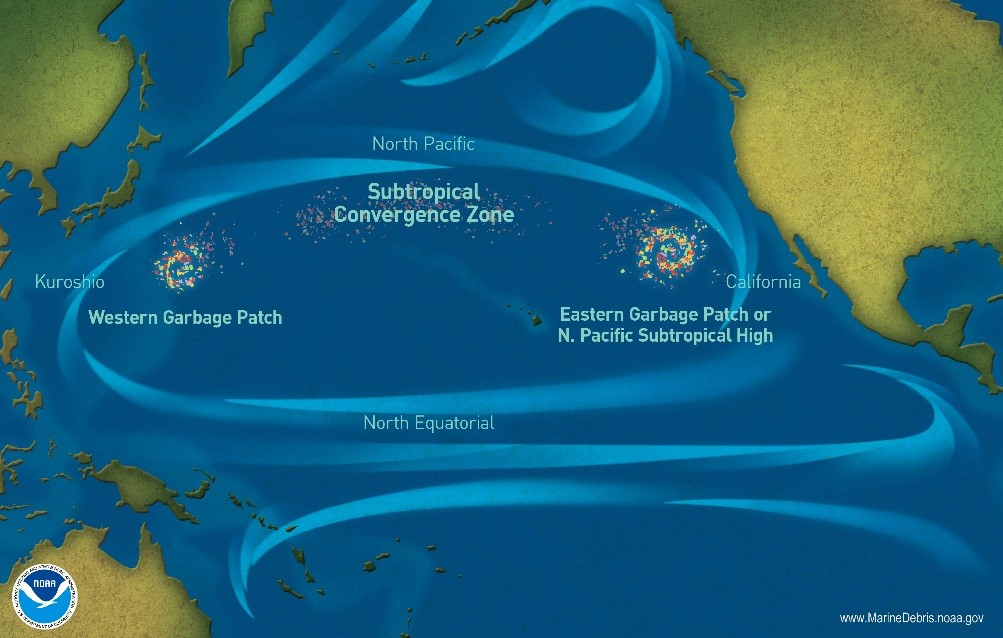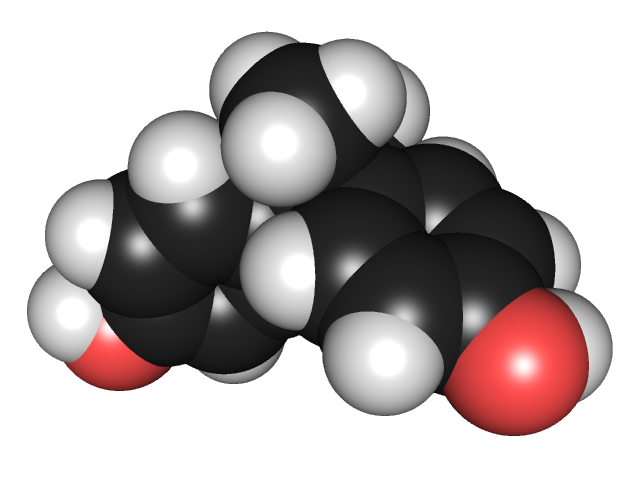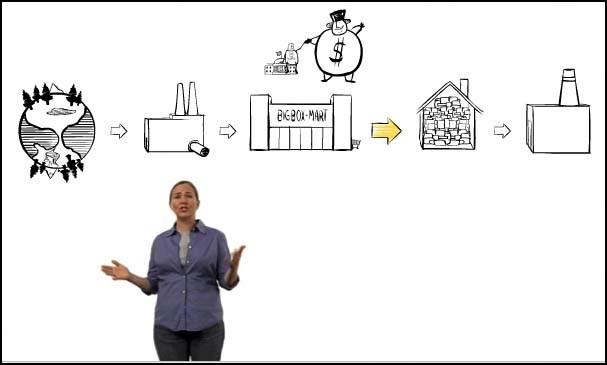JP Steinberg, Kean University, Social Movements paper - Zero Waste Lifestyle, Not an Option.
The following is a paper I wrote during my senior year in college for a Social Movements class. I hope you enjoy reading it and are able to take something form it, if nothing more than awareness.


Introduction
If you have ever seen the movie Plastic Paradise or have ever heard of or research the Great Pacific Garbage Patch (GPGP), it becomes increasingly difficult to ignore and deny that man is not only decimating regions of the planet with warfare and by pumping toxins into the atmosphere as well as dumping waste into our fresh water supplies, we are literally killing the entirety of Earth’s oceans and marine life. The GPGP is an unintentionally manmade gyre, primarily consisting of plastic, which courses along the ocean’s natural currents. The plastics found along the gyres makes its way to the oceans after being improperly discarded by people.

Even though most of the developed world utilizes garbage disposal services, maintains landfills and implements recycling programs, none of these practices ensure that waste does not escape the waste stream by way of litter or being carried by winds and the water table.
While any amount of litter and toxic waste in our environment is harmful to the ecosystem, the extent of damage being done by plastic in the oceans could be very well beyond repair at this point. Fish, birds, amphibious reptiles and sea mammals are dying at an alarming rate from ingesting or being injured by plastic debris. And the plastic industry continues to grow exponentially as Western consumerism spreads its influence across the globe. By continuing the current paradigm of consumerism, producing and discarding petroleum based products, we will see no end to the destruction of the nature that once abundantly sustained all life on this planet.
Herein lies the real problem - Economics 101. That is to say, lay people and so called experts alike have a very narrow understanding of what economy really means or what it actually is.
A rudimentary examination of economics will concern itself primarily and almost entirely with the production and consumption of goods. The wealth of a nation is measured according to its economy. The word economy has also come to be equated with “value”. What is given value is the level of comfort, convenience and luxury afforded the higher socioeconomic sectors of society. Economically speaking, this is sustained by the lower classes engaging in an endless cycle of obsessive and compulsive consumerism giving all their time, labor and income to the wealthier classes in exchange for mass produced, mostly petroleum based, highly toxic and ultimately destined for landfill products.
If you are reading this, there is a good chance you live in the developed world and yourself engage in some level of consumerism. Look around you and take note how many items are made of plastic. Not only the obvious disposable products such as beverages and food wrappers, your television, computer, tablets, phones, appliances, storage bins, shelves, chairs, tables, hi-fi stereo, garbage cans and bags, buttons on your clothing, interior of your vehicle, pet’s food dishes, the list goes on. These are items you come in direct contact with daily. What is the big deal you ask? Read on...
To begin with, plastic, in its most common form, is a synthetic chemical compound derived primarily from petroleum. The material is referred to as plastic due to its malleability and ability to be shaped and molded into permanent solid forms. The first fully synthetic plastic was invented in New York in 1907. Since then, this material has displaced the consumption of natural resources such as wood, stone, animal hides, glass, metals and clay. You may think this sounds like a good way to preserve the natural ecosystem. And there are a lot of pros to utilizing plastic; it can be made extremely durable for constructing spaceships, it can be made into material like polyester and long lasting comfortable clothing, it can contain and preserve our foods and it is impervious to water and many other liquids. In other words, it is quite useful and can make our high paced Western societies very convenient and easy to navigate.
So, it would seem keeping plastic as a vital resource is a no brainer. Here is an important but little-known and often ignored fact about petroleum based plastic – it contains chemical compounds such as Bisphenol A (BPA) and phthalates, both of which contribute in no small part to the rapidly increasing causes of reduced or failed reproduction, neurobehavioral deficits and compromised immune systems in both humans and animals (Lee, Pedersen, & Thomsen, 2014).
Besides the obvious damage extracting crude oil from the planet can do to the environment when mishandled, there are tremendous implications to the physiological and genetic health of the human species even after it is processed into seemingly safe and useful materials. Our bodies absorb the chemicals leached into our immediate environment by mere exposure to the elements, and we consume acidic foods and beverages which have had time to dissolve molecules of endocrine disrupters from their respective containers, sometimes at high temperatures. How many times have you eaten chicken wings and French fries from your favorite Chinese food spot and noticed the Styrofoam (an extremely carcinogenic plastic often used for take-out) melted in places where the fries touched it hot out of the fryer?

Even BPA free plastic products contain other toxic compounds. Food packaging, water bottles, straws, condiment packages, fast food wrappers, candy wrappers, cleaning products, health and beauty products, tools and utensils plague our world with neurodevelopmental toxins which cause cancers, mood and sexual disorders at the same time as presenting a growing problem of materials in our global waste stream which cannot easily be returned to nature and takes an immense amount of energy to recycle. It has also been found that recycling is not only ecologically and economically costly, secondary raw materials contain and leach micro-contaminants into our environment, under the radar of the FDA (Lee et al., 2014).
As a side note, BPA is also found in nearly all thermal paper used to print receipts from cash registers. In the film Plastic Paradise, director Angela Sun has her blood tested before and after crumpling a receipt in her hand for a few seconds to discover the rate of absorption of BPA into her blood was seriously concerning.
In addition to the toxicity present in the environment resultant from the overabundance of plastics and our exposure to it by osmosis and via our food supply, many of these plastics are used to contain and apply health and beauty products such as anti-preprints, soaps, and lotions which themselves are often neurotoxic and carcinogenic. Antiperspirants, for instance, contain aluminum, which is found to play a role as one of the factors which cause breast cancer; and is almost always packaged inside of a plastic applicator heavily laden with neurodevelopmental toxins. Some toothpastes and exfoliating lotions contain plastic microbeads, which are now banned in many parts of Europe and in some states. Plastic bags are another petroleum based modern convenience which only muddies up our contribution to the global ecosystem, and are also being banned in some parts of the world.
What can we do to trade in this one-way ticket towards global and total self-destruction for a way of life as convenient and accommodating as many of us have become so familiar and comfortable with which would not pose the ecological hazards and health risks our current paradigm so clearly and often painfully does?
Mainstream society, the bulk of toxic consumers worldwide, is comprised of what has come to be known as the 99%. If the Occupy Movement taught us anything, it is that only 1% of the world’s population maintains a monopoly on virtually all the world’s resources and military might. For this to remain an objective reality, the other 99% of the world’s population must constantly and consistently engage in cyclical consumption and must remain dependent on the monetary system to sustain daily life. All bare necessities must remain commoditized and part of what we call the “economy”. Your focus, and mine, must be trained on the idea that we need to work to earn enough money to afford our way up Maslow’s Hierarchy of Needs, buying every modern amenity and striving for luxury along the way.
There is another monopoly we often fail to address when educating the masses on how to best focus what little political clout we possess as a very minor player on the global legislative platform; that is the great power and influence major corporations and industries have over every government from one continent to the next. The oil tycoons, defense industry, big pharma, tobacco, transportation and agriculture are surely in bed with one and other. Old school conspiracy theories like the Bilderberg Group have garnered enough media attention over the years to safely be assumed common knowledge among intellectual circles and academia at least. The dollars they control are enough to produce enough propaganda to flood the minds of a majority of the 99% to the extent that ignorance not only appears blissful, but becomes a full-blown debilitating addiction.
Despite these efforts and the apathy and lethargy which has taken the spirit of mankind, marches are being organized against corporations like Monsanto in major cities regularly. There are groundbreaking, award winning documentaries reaching every corner of the internet which help to put our global societal problems into objective perspectives and wrap them neatly in a pleasant and marketable package. The term woke is now part of the lexicon of modern colloquial English. Ethically sourced and eco-friendly are becoming a conscious consumer’s go to standards for the materials and products they seek to purchase. The question was, what can we do? The answer is, nothing. Essentially and collectively, you and I have not the time, resources, nor level of political influence which transcends police barricades and crowd dispersal techniques which keep us on the front lines kicking and screaming like big whiny babies while those we seek an audience with sit at their cushy conference tables watching the news on large screens wondering when we will tire and go back to paying our taxes and watching the playoffs.
I do not seek to start nor join a movement for the sake of changing the word. A movement would denote a targeted goal within a prescribed period. A movement can end as fast as it can begin. A movement can reach the level of bureaucracy and be subject to regulations, restrictions and the proverbial red tape which often hinders any real creativity and progress. A movement often requires an apparent catalyst to spark its founders and pioneers. The level of destruction our way of life is doing to the planet, its flora and fauna and our species is imperceptible as an abstract concept without taking every aspect and factor into account. One must account for the metaphysics and epigenetics interwoven with our linear manner of consumption.

Annie Leonard, director of the film The Story of Stuff (2007), did an amazing job of exposing the public to the practices of planned and perceived obsolescence and how linear consumption requires the extraction of natural and finite resources and that those resources be converted into toxic byproducts and all out waste destined to pollute our environment and bodies for generations to come. Most of which are items we simply do not need.
The Story of Stuff can be credited with having impetus on many people’s lives over the last ten years. I stumbled upon it as a Flash video on Leonard’s original website in the early part of 2008. At that time, I would have sworn to you that I was a fairly “woke” dude; I had much to learn. As I began to understand how my own level of consumption made me a part of a very serious problem, I began to want to learn how to lessen my contribution to the waste stream and diminish my impact on the ecosystem. I also began to discover that there were ways I could reintegrate myself as an active participant in the ecosystem and become completely and totally responsible and accountable for my own decisions and actions. A tall order for anyone sustaining life within the confines of consumerism navigating one’s way through society utilizing only money to facilitate physiological needs.
As I moved further along actively participating in what I later discovered to be a growing movement of people around the world working towards the same goals, I found it increasingly difficult to ignore science. That science being the knowledge that every piece of trash I produce for the rest of my life has the potential to remain on this planet causing great detriment to the future of what is likely the only planet my children will ever inhabit.
If I were to pigeonhole myself as an activist in anyone movement now, it would be Zero Waste. Although it is difficult to label Zero Waste a movement, it is more so a philosophy and way of life that one adopts in response to a global calling to develop immediate and drastic solutions to a state of emergency which if not addressed will lead us towards a community afflicted with disease, disorder, scarcity and poverty on a level unimaginable by even the most advanced trends forecasters.
Zero Waste as a concept and lifestyle has recently been popularized by a host of YouTube channels and bloggers. Bea Johnson is often credited as the mother of the movement. She, with her husband and two children, has been living this lifestyle in California since 2008. In 2013 she published a book, she has done a TED Talk on the subject and has a YouTube channel and website where she and her family set an almost perfect example for any family or individual debating how simply and convenient a zero waste lifestyle would integrate with our high paced and superficial culture (Chapman, 2017).
Johnson and many others with a growing presence on social media are successfully managing lucrative careers while taking an active role in mainstream society and remaining true to the philosophy of Zero Waste. For example, Johnson, a slender attractive European woman, shows her wardrobe which only consist of a handful of articles of clothing that when combined with very few accessories and shoes which she purchased second hand, keeps her looking as professional and dapper as any typical female consumer working in a professional and upper class setting.
Zero Waste stores are opening in major metropolitan areas, like the one in Brooklyn’s very hip Williamsburg neighborhood called Package Free. Owner, Lauren Singer, became a leader in the Zero Waste movement with her blog and YouTube channel Trash is for Tossers, where she teaches how she can produce enough waste to just fill a 16-ounce mason jar in a five-year span. The average American produces about 4.4 pounds of trash a day. The store sells products that are free from packaging which are eco-friendly, biodegradable and reusable (Chapman, 2017).
On the island of Fiji, researchers and government officials are working towards a Zero Waste solutions together with community leaders and their citizens. The Department of Environmental Science at Fiji National University chose a Sunday school for children ages 5 to 19 in the town of Natabua, a middle-income area where piles of garbage can be found in the drain on the streets, to integrate an awareness program integrating Bible studies with basic environmental responsibility. In addition to lectures, practical solutions were presented. The children were encouraged to create clean up campaigns and were offered incentives through the school to continue these new-found practices. This is what is referred to integrated waste management (Perera, 2016).
As stated previously, the concept of economy has been constructed within a very limited scope. Georges Bataille, French intellectual and literary figure, described economy using a much broader framework. He understood that to produce and consume goods, energy is required. And that ultimately, energy is the basis for all living matter to sustain life. Along with the cycles of production, distribution and consumption is the transition of living matter into energy. No matter how much we synthesize and generate energy artificially by means other than human muscle, economy in general, must concern itself with the biology, the biology of plants. Therefore, a Bio-Based Economy, would seem the more sensible theoretical model by which to develop a new manner of consumerism (Zwier, Blok, Lemmens & Geerts, 2015).
All plastic products can be replaced with plant based biodegradable and nontoxic materials, even Styrofoam can be replaced with a material derived from mycelium. Energy can be generated by entirely eco-friendly and sustainable means such as solar and biodiesel.
One idea espoused by the Zero Waste community is the five R’s – refuse, reduce, reuse, recycle, rot. I will add upcycle and repurpose to that list. Refuse the freebies consumer culture abundantly provides. Reuse items such as water bottles, plates ad napkins rather than disposables. If you must discard something, check to see whether it can be recycled before tossing it in the garbage. Compost food waste whenever possible. Upcycling and repurposing is a more creative and involved endeavor; if you cannot or do not wish to make the effort, give the item to someone who will.
Another measure I have taken in my personal life is eliminating the consumption of store bought household cleaning agents and health and beauty products. My household of two adults and two children has spent the better part of four years now learning how to either make our own soaps and detergents or going without. We use organic coconut oil as toothpaste, lotion and soap, we use essential oils such as tea tree as deodorant, and we do not use soap or shampoo when bathing. We clean our house with vinegar which we infuse with orange and lemon peels ourselves. We do not buy any beverages and own reusable BPA free water bottles. We have been learning how to find foods in the supermarket which do not come in any sort of plastic packaging and have been transitioning much of our grocery shopping to bulk and bringing our own containers and bags to the store.
We have also begun to downsize our wardrobes and belongings and no longer allow family and friends to bring gifts over for our children, we ask that they help us create memories instead. When we must purchase something we diligently research until we discover the most eco-friendly and sustainable product and means to obtain the product that we possibly can. No one said this was going to be easy.
Convenient and comfortable? Not so much in the beginning. Imagine being the only one among a group of friends whom refuses to return to the bar you once frequented because they use disposable cups instead of glass. Think about the looks you get the first few times you admit in public that you no longer use deodorant or wash your hair with shampoo. It is similar to being in recovery from a drug or alcohol addiction and having to accept and embrace this new lifestyle which eases the feelings of guilt and frees part of your mind to be used for more creative and productive thinking. Less anxiety, and clearer cognition should be a result as well as having more money to spend elsewhere. Those whom struggle with the same affliction will see your success and happiness and follow suit.
Again, I do not wish to be part of a movement, I am and so can you be the movement.
References
Chapman, I. (2017, May 1). Zero waste isn't just for hippies anymore. Retrieved from http://www.cnn.com/2017/05/01/health/zero-waste-package-free-trnd/
Trash is for Tossers [Video file]. (2015, May 27). In Www.tedxteen.com.
Lee, J., Pedersen, A. B., & Thomsen, M. (2014). The influence of resource strategies on childhood phthalate exposure—The role of REACH in a zero waste society. Environment International, 73312-322. doi:10.1016/j.envint.2014.08.003
Perera, A. (2016). Fiji towards zero waste: Effectiveness of empowering children and youth of Fiji Islands for integrated waste management. Journal Of Solid Waste Technology & Management, 42(1), 982-985.
Zwier, J., Blok, V., Lemmens, P., & Geerts, R. (2015). The Ideal of a Zero-Waste Humanity: Philosophical Reflections on the Demand for a Bio-Based Economy. Journal Of Agricultural & Environmental Ethics, 28(2), 353-374. doi:10.1007/s10806-015-9538-y
Thank you for your continued support.
Your contributions help keep the #EHO homestead afloat as well as fund my personal fight against the War on "Drugs".